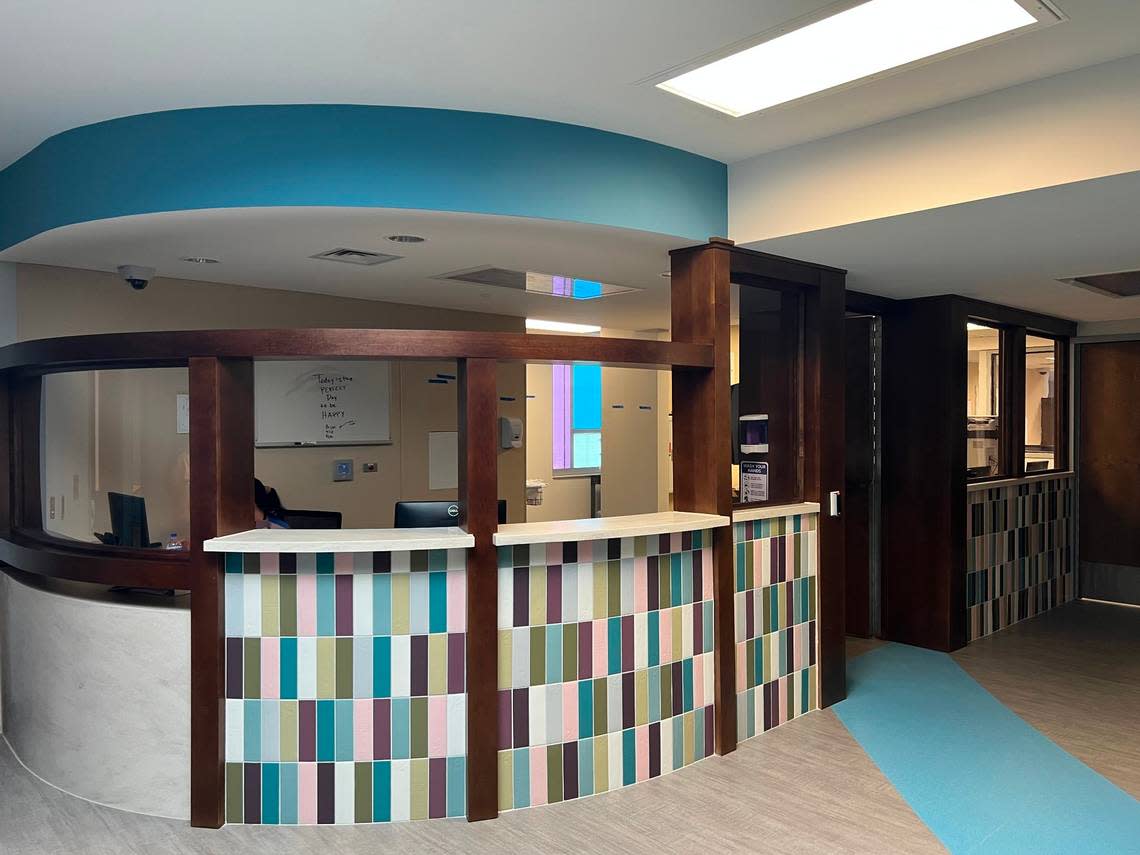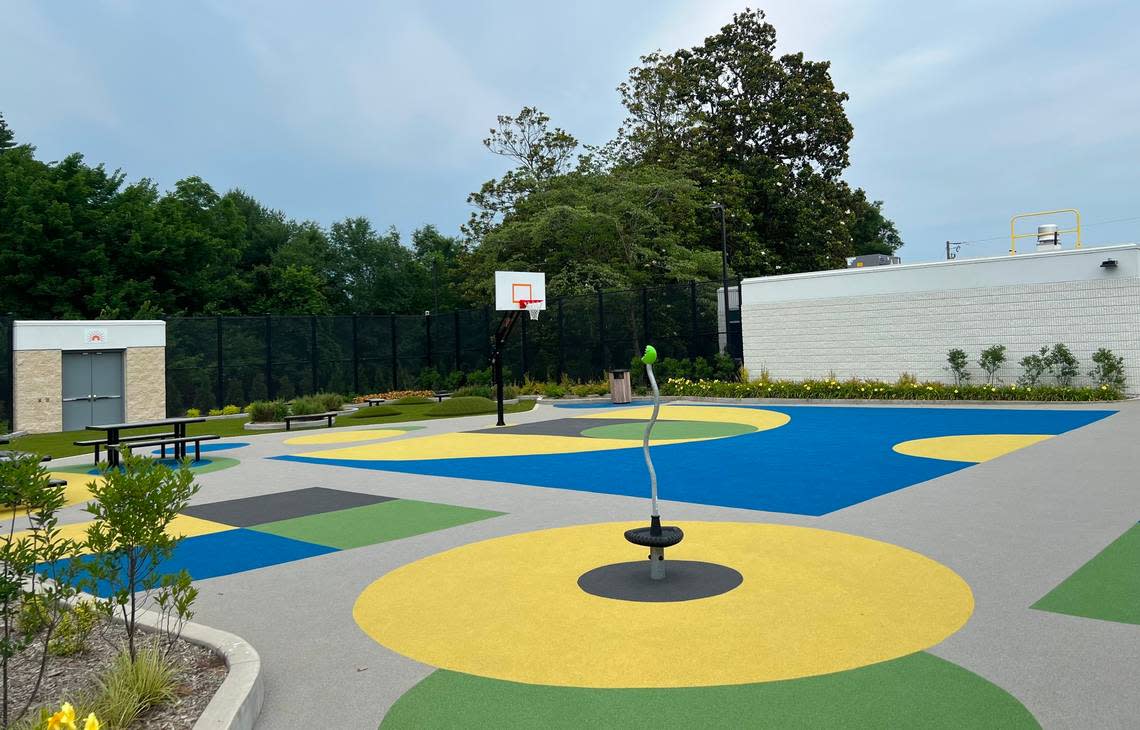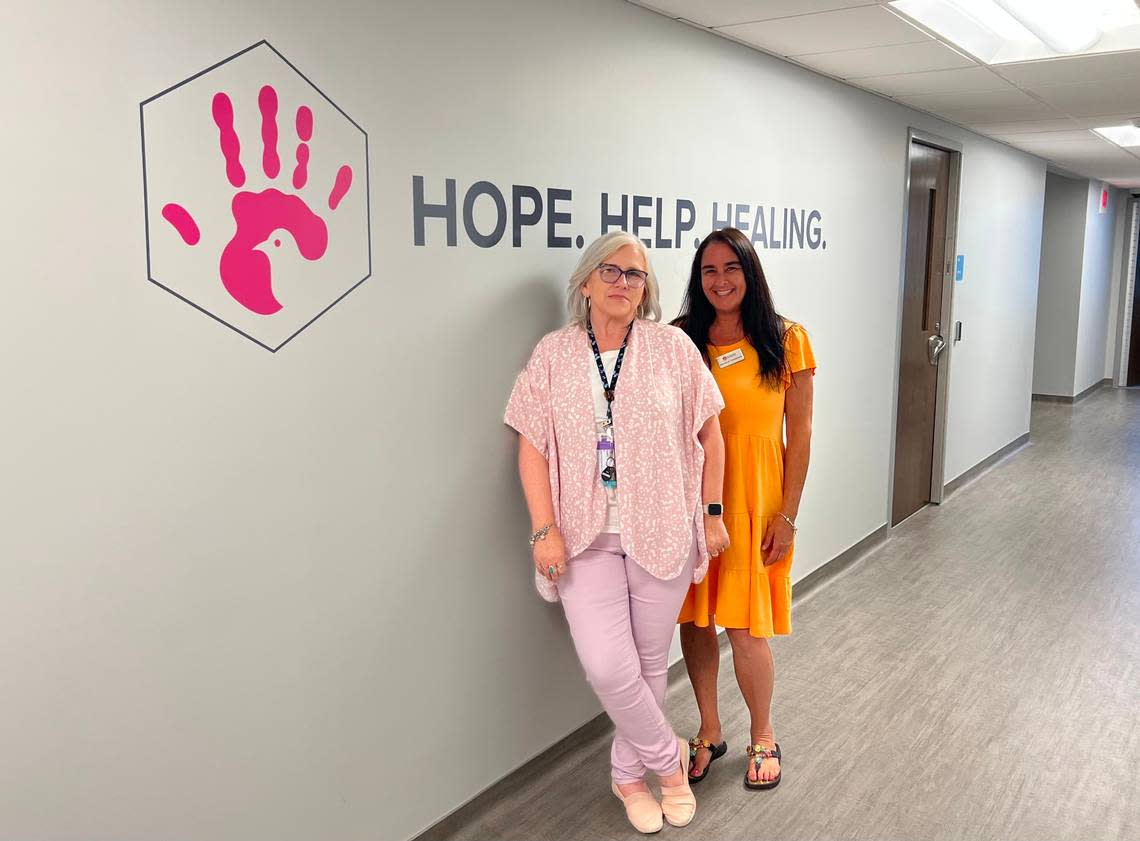Behavioral health facility for children, young adults opens in the Triangle. What to know.
A new behavioral health facility in southern Wake County will address the barriers many young people face when they are experiencing a mental health or psychiatric emergency.
Often, when children are in a crisis and dealing with issues like depression, anxiety, trauma, or schizophrenia, options for adequate and immediate care are elusive.
They sit in crowded emergency rooms, often waiting hours to see a doctor or get a bed.
Sometimes, they are sent hours away from their homes and families to treatment facilities lacking specialized care and trained professionals for their specific needs.
Mental health advocates in the state and around Wake County say the gaps in treatment have contributed to the rise in suicide rates and other issues exacerbated by the COVID-19 pandemic among children and adolescents.
Now, there’s a behavioral health urgent care and resources center specifically designed for young people in the central part of the state.
The Hope Center for Youth and Family Crisis opened June 5 in Fuquay-Varina at 400 W. Ransom St., about a mile from downtown.
The facility, a partnership between behavioral health organization Alliance Health and psychiatric hospital KidsPeace, offers around-the-clock care for children ages four to 17 and young adults 18 to 20 and their families needing immediate care.
All the programs and services offered are to keep young people battling mental health issues out of emergency rooms and in their homes with their families if they can, according to Tammy Margeson, the facility’s executive director.
The center’s three-service care model addresses mental and behavioral issues and provides long-term guidance for young people and their families as they navigate life, school, work or other hardships.

A new option for child mental healthcare
The first service offered within the Hope Center is the MORES program, short for Mobile Outreach Response Engagement Stabilization. The program was launched last year in Wake, Durham, Johnston, and Orange counties.
MORES acts as a first line of defense. Teams respond to immediate crisis issues in children and young people ages 3 to 20 and connect those families to other resources. Families can call MORES before bringing a patient to the facility, which takes some pressure off first responders and reduces the need for hospitalizations and out-of-home placements.
The second service, the behavioral health urgent care unit, also known as BHUC, works with children 4 to 17. Sometimes young people can be brought to the unit even after consulting with MORES, said Michele Chassner, a regional liaison for KidsPeace.
In BHUC, the model of care focuses on the assessment, stabilization and treatment of young people.
Once patients arrive in the urgent care unit, they are stabilized in areas called “OASIS,” with TVs, comfortable chairs, and stuffed animals. The rooms are designed to help a patient feel safe and tranquil.
Patients can stay in urgent care for up to 24 hours while mental health professionals work to assess their needs or find other options for care, Margeson said.
This differs from a hospital, she said, where children are not “typically provided with any counseling.”
“They’re not provided with anything outside of the medication and observation,” Margeson said. “If they stay long, teachers may come to the emergency rooms to keep up with lessons. If they meet with a social worker, it’s usually about case management and not about therapy.”
At the Hope Center, Margeson said a 13-year-old could come for care and spend time being stabilized and assessed, and “within an hour or two of their assessment, (they) might be out on the basketball court playing with a mental health tech for an hour and a half.”
“And the whole time that they’re playing ball, they’re working on their health,” she said.

A 16-bed patient service area
Lillian Davis, the executive director for the National Alliance on Mental Health in Wake County, said the Hope Center will address the “surge” of children and young adults who need adequate mental health services so that they don’t continue to endure long waiting lists or “a lag in care.”
If more care is needed or a patient is diagnosed with a mental illness, patients aged 6 to 17 can stay at the Hope Center for up to 14 days in the Facility-Based Crisis, or FBC, unit.
The FBC, a 16-bed in-patient service area, is split between both sides of The Hope Center’s building, one area for children ages 6 to 12 and the other for adolescents 13 to 17.
There are affirmations written on the walls with spacious, separate rooms for patients, bathrooms and showers, and skylights in the ceilings of the common areas.
Though the beds in each room in the unit are neatly made and ready for use, Margeson said it will be a while before the unit is fully operational. The program is currently undergoing a state licensing review.

North Carolina scores ‘F’ in children’s mental health
In April, NC Child released their child health report card that tracks the health and well-being of the state’s children and young adults in healthy births, access to care, secure housing and neighborhoods, and health risk factors.
The state earned an “F,” the lowest grade, for children’s mental health, emphasizing the impacts of the COVID-19 pandemic and other factors like barriers to care.
In 2019, suicide was the leading cause of death for children ages 10-14 in North Carolina, the report read.
The following year, a record number of 67 children died by suicide in the state.
The report found that one in five high school students in the state reported seriously considering suicide, and the number of adolescents 12 to 17 with major depressive episodes increased by 25.8%.
The numbers are also disproportionate among children who are minorities or identity as LGBTQ+.
Matt Calabria, the Wake County Commissioner for District 2 serving Fuquay-Varina, said establishing The Hope Center is “the right thing and the smart thing.”
“Our children need the services,” he said. “It will save lives. it’s the smart thing because we want every resident to get the right level of care. it’s a tremendous addition to southern Wake County and to all of Wake County.”
Calabria said Alliance Health funds the Hope Center and has been working with the commissioners and others for almost 10 years to open the facility.
“It’s important for us to treat people with dignity, especially when we think about children for whom these kinds of interactions may be formative experiences,” Calabria said. “For kids to get the help they need to live better, happier and healthier lives is a tremendous import for residents.”
How to get help
No young person will be turned away from The Hope Center regardless of insurance or the ability to pay, the group said.
Patients and families can get information about insurance, Medicaid, and payments by contacting The Hope Center by phone at 877-888-7849 or 610-799-7500.
The MORES program can be reached by calling KidsPeace at 484-215-6756.
Margeson said applications for mental health professionals and staff members are still being accepted. Job openings can be found on the center’s website at kidspeace.org/the-hope-center.
Help is available 24 hours a day at the National Suicide & Crisis Lifeline by dialing 988 or visiting 988lifeline.org.
